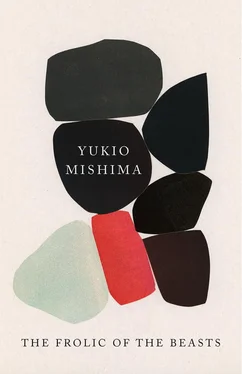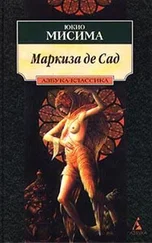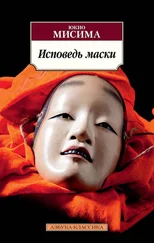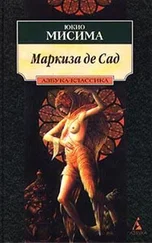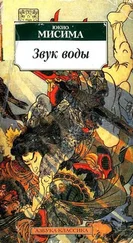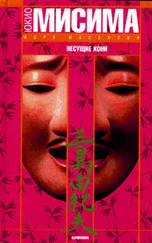From Kuri I took the bus and traveled due north along the coast road and arrived in the next small fishing village, called Iro. Unable to rely on the good offices of an introducer, I explained the objective of my field trip to the proprietor of the hotel I was staying at and asked whether there was an elder who passed on the oral tradition of reciting old folk songs. The proprietor said that, while he himself did not know, he was on friendly terms with the chief priest of the local Taisenji temple—Kakujin—and that, since the priest himself was interested in matters such as this, it would be more expedient to meet with him.
As I was tired, I spent that evening in the hotel putting in order the materials I had collated.
The following day was a hot midsummer’s day, and after breakfast, I slipped on a pair of the hotel’s geta and tottered along the prefectural highway. Turning right, I went past the post office before turning left again and passing through the old main gate of the Rinzai sect Taisenji temple.
A lot of children were playing in the temple precincts, and while the temple itself looked as though it had been remodeled a number of times, it still retained the majesty of the old architecture, built in the Oei era. Asking to be shown the way, I met the priest Kakujin for the first time.
During my stay in Iro Village, I was deeply impressed by the priest’s character, and even during that short period, there developed between us a particularly intimate friendship; as for the priest, he no doubt welcomed me as an appreciative acquaintance at the very time he was lamenting the fact that with each passing day the young people of the village were increasingly turning their backs on the customs and traditions of the past.
Soon after our first meeting, the priest complained to me about how the boatman’s song, which had been preserved by the village shrine, was on the verge of dying out, and sending for the last reciter, he arranged for him to recite the song especially for my benefit. I was truly delighted at this.
The old fisherman who soon turned up, however, was a simple soul indeed; he made the introductory remark that lately he had been suffering from ill health, the tone of his voice was disappointing, and that this would, in any case, likely be his last recital.
While the boat event itself had since died out, up until several decades ago a festival was held annually on November 3. The shrine boat Shinkosen Myojin-maru was splendidly decorated; the young villagers would take up its twelve pairs of oars and row around the interior of the bay all day long.
In the middle of the boat was a room of approximately fifty square feet. Inside it, five singers would recite sacred songs, and when the recital came to an end, dancers dressed in red kimonos performed a monkey dance. This was likely as not a variation of the Noh Sanbasō performance. It seems to be similar to the Sanba Sarugaku performance that still exists throughout northern Japan.
Twelve songs—beginning with the “Sacred Boat Song”—have been handed down, and it took two days to finish reciting them aboard ship. However, the only one I was able to listen to was the “Sacred Boat Song,” also known as the “Song of the Gods.”
Before the reciter began his recital, I had an opportunity to copy some of the verses, which were written on an old sheet of calligraphy paper.
The lyrics begin with “How joyous and happy a celebration. Yes, this is a celebration…” and is a typical celebratory song, devoid of any particularly notable characteristics, found throughout the various regions.
What a celebration.
In the snows of early spring,
Scarlet buds like braided joints of armor
Turn into cherry blossoms in the city.
Cascading deutzia in summer
Becomes the waterfall to the Arashi River.
When autumn comes,
The Nishiki River battles through
The eternally triumphant colors of the maple leaves.
In winter, the sky clears after the snow…
The song continues in a similar vein with descriptions of the four seasons, which immediately reminded me of the piece in the Collection of Sacred Celebration Songs called “On the Beach.” It includes the following words: “How pleasant are the valleys!”
The valley of plums in bloom in spring.
The neighboring villages are fragrant, too.
The cool dale of fans in summer
Enjoy dayflowers in the sedge valley in autumn.
The dale of tortoise under the snow in winter;
To find it after a long absence!
The celebratory song “On the Beach” can also be found in the repertoire of the Kowaka School of Dance. Of course this piece is derived from one in the Collection of Sacred Celebration Songs; however, the version in the Collection of Sacred Celebration Songs clearly praises the city of Kamakura.
“Now that I have taken my revenge on my enemy and have made a name for myself, I can lay down my swords, bows, and arrows.”
These words from the “Sacred Boat Song” reminded me of the piece called “The Celebration of a Long Life and Vengeance” in Kumiodori dance. However, the warmongering samurai vengeance theme quickly dissolves into a peaceful chant that celebrates longevity.
The reciter once again excused his poor voice and started reciting the first line of the “Sacred Boat Song” in a relaxed manner. His voice was unexpectedly beautiful. Although it was somehow melancholy, still it retained the sparkling brightness of a calm sea.
—
I was thrilled with the materials I had collected relating to the “Sacred Boat Song,” and so I felt like staying on awhile in this village and unearthing more buried folklore materials at my leisure. Chatting with the priest during my frequent visits to Taisenji, I searched for clues in everything he said, clues that might lead to still further discoveries.
It was my fifth night since I came to the village. Having been treated to some sake at the temple and while talking with the priest about this and that, my attention was drawn in an unexpected direction by an anecdote he shared. Straying from my scholarly interests, I was seized with a burning curiosity about an incident that happened in this village two years ago. It involved a young man who, together with a married woman, strangled the woman’s husband. The husband had been suffering from aphasia—the illness caused in the first place two years earlier as a result of an injury inflicted by the young man. Pressing the priest, I persuaded him to tell me everything he knew about it. Strangely, the priest shared his sympathy equally with each of these three characters, and in particular, my interest was considerably piqued by the woman called Yūko.
Even with the benefit of the priest’s detailed explanation, both Yūko’s appearance and her character remained enveloped in a veil of obscurity and the only image I could conjure of her was her thin lips, adorned—as they always were—with heavy lipstick.
This vague image, which was so difficult to grasp, was for me just like an old and beautiful, and yet mysterious, piece of folklore that had been buried, and what a valuable scholarly discovery it would be, if only I could capture it now, when it was on the point of being lost—having been passed down in the utmost secrecy.
Then at last, the priest suggested he show me a photograph that was in his possession. As he stood up to open the box where it was kept, I felt overwhelmed with feelings of both hope and unease. Researchers like me often experience disappointment on field trips when, leaving aside the collation of data relating to the oral transmission of language and thought, we are dismayed to find that a particular ancient manuscript that has been described to us in glowing terms actually turns out to be nothing remarkable.
Читать дальше
